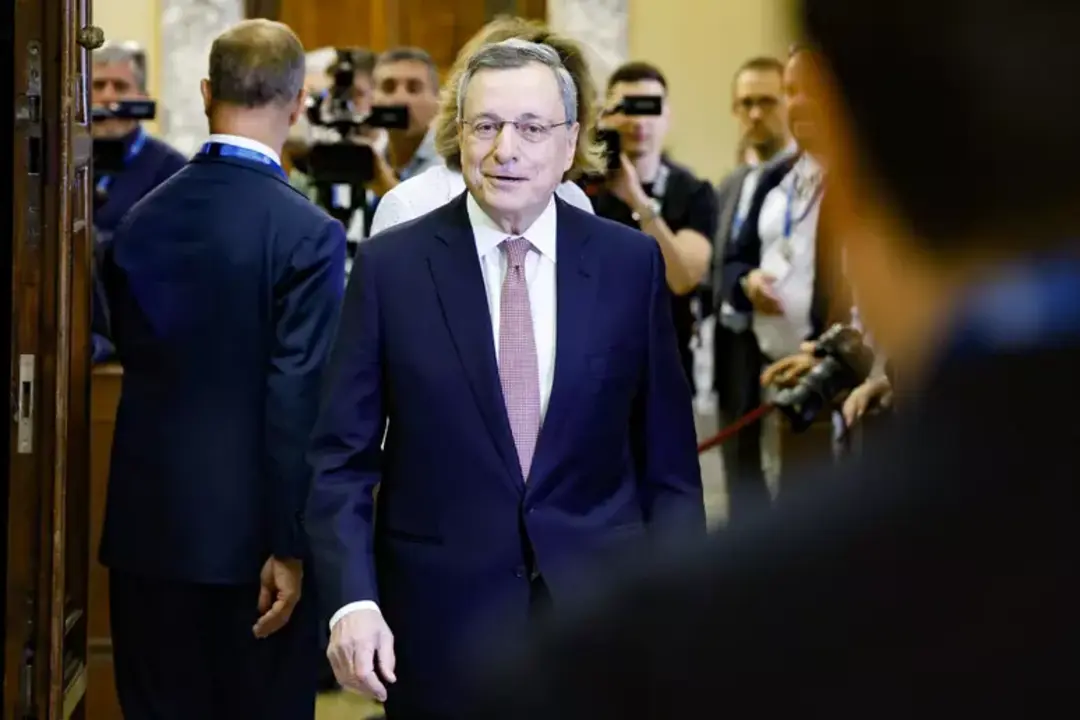2025 has been the year in which the European Union’s illusion of importance has evaporated, Former European Central Bank president and ex Italian premier told the annual Rimini Meeting of the influential Catholic activist group Comunione e Liberazione in a keynote speech on its opening day Friday.
The EU has become a marginal spectator from Ukraine to Gaza, he said, while stressing that there have been recent peaks of skepticism for the EU and it was time to change.
“For years, the European Union believed that its economic dimension, with 450 million consumers, brought with it geopolitical power and influence in international trade relations.
This year will be remembered as the year this illusion evaporated,” Draghi said in his speech at the Rimini Meeting.
“We had to resign ourselves,” he explained, “to the tariffs imposed by our largest trading partner and long-standing ally, the United States.
We were pressured by that same ally to increase military spending, a decision we perhaps should have made anyway—but in ways and forms that likely do not reflect Europe’s interests.” “The European Union, despite having made the largest financial contribution to the war in Ukraine and having the greatest interest in a just peace, has so far played a fairly marginal role in the peace negotiations,” Draghi went on.
“Meanwhile, China has openly supported Russia’s war effort,” and “European protests have had little effect: China has made it clear that it does not consider Europe an equal partner and is using its control of rare earths to make our dependence increasingly binding.” Furthermore, the EU “was a spectator even when Iranian nuclear sites were bombed and the massacre in Gaza intensified,” he said, receiving loud applause.
“These events have shattered any illusion that the economic dimension alone could ensure any form of geopolitical power.” “It is therefore not surprising that skepticism toward Europe has reached new heights.
But it is important to ask what this skepticism is truly about.
“In my view, it is not skepticism about the values ;;on which the European Union was founded: democracy, peace, freedom, independence, sovereignty, prosperity, equity” and “social protection.
“We have a social welfare system that is probably the most developed in the world.
“Rather, I believe the skepticism concerns the European Union’s ability to defend these values. This is partly understandable.
Models of political organization, especially supranational ones, emerge in part to solve the problems of their time. When these change so much that the pre-existing organization becomes fragile and vulnerable, it must change.”
ALL RIGHTS RESERVED © Copyright ANSA
